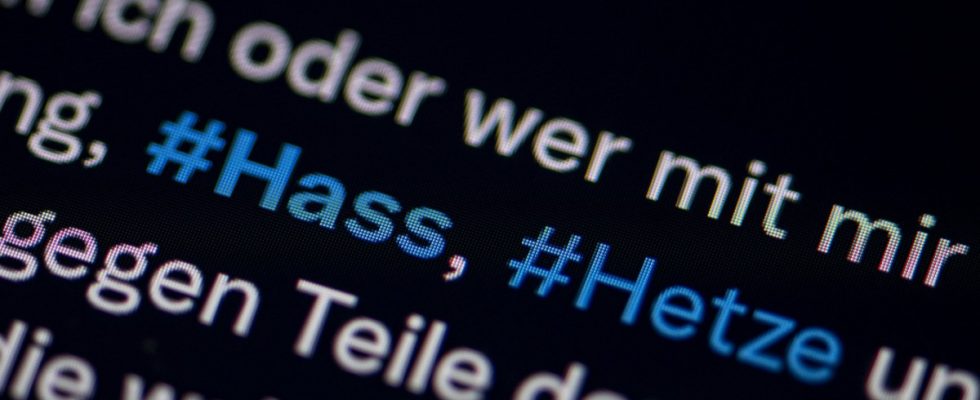“Unfortunately, hate crime is still booming,” is how Bavaria’s Interior Minister Joachim Herrmann (CSU) summed up the hate crime situation. Together with Minister of Justice Georg Eisenreich (CSU), Herrmann presented on Monday the development of criminal offenses in Bavaria over the past four years. According to the report, there were 1,186 crimes in this category in 2022 alone. Even if the number means a slight decrease compared to the previous year, the ministers agreed: “The numbers are still too high.”
Hate crime occurs when people become victims of crime because of their nationality, skin color, religious affiliation, gender or sexual orientation. Herrmann sees this as a “particularly reprehensible form” of crime. Sometimes it does not stop with verbal attacks, but there are also physical attacks. Their number increased in 2022. The ministry recorded 115 such violent crimes last year, an increase of around 40 percent compared to 2019 – a new high.
The number of crimes motivated by anti-Semitism is also at a high level in a four-year comparison. In 2022, 358 such crimes were registered in Bavaria. Although this means a decrease of 30 percent compared to the record year 2021, it is still alarmingly high, said Herrmann. The strong increase in 2020 and 2021 is largely due to the protests during the corona pandemic and the declarations of solidarity as a result of the Israel-Palestine conflict, explained Eisenreich. The number of registered cases of crime against lesbian, gay, bisexual, transgender, intersex and queer people is also worrying. “The topic is more in the public eye, which is why more victims are reporting to the police and reporting cases,” says a statement from the Ministry of the Interior and Justice. There has been a 231 percent increase in crimes in this field since 2019. Overall, however, this area accounts for only about eight percent of hate crimes.
The group of suspects remained the same: around 90 percent of them were German citizens and around 80 percent were men.
In this context, Minister of the Interior Herrmann drew attention to the high number of unreported cases. Perpetrators can only be prosecuted if victims go to the police. The Free State of Bavaria was able to solve 64 percent of all hate crimes last year. “Each report increases the likelihood of being able to hold perpetrators accountable,” the minister reminded.
Michael Weinzierl, the representative of the Bavarian police against hate crime, knows that going to the police is shameful for many victims. Weinzierl was appointed special representative this year to further develop the police’s strategies to combat hate crime, to strengthen internal police training and further education, and to promote cooperation with external bodies. Because dealing with victims of hate crime requires particular sensitivity, according to Weinzierl, officials are trained in specific training courses. Police action should thus gain transparency. He pointed out that every police station has a hate crime contact.
One of the focal points in investigating criminal offenses in recent years has been hate crime on the Internet. “Hate and hate speech on the Internet can affect anyone,” said Eisenreich, citing the Russian war of aggression against Ukraine as an example of a “breeding ground” for crimes on the Internet. “Hate crime poisons the social climate and suppresses the freedom of expression of others,” he said.
Appropriate preventive measures are all the more important in order to make the perpetrators of hate and hate speech on the Internet more easily accountable. One of these measures for better clarification of so-called “hate speech” on the Internet is the possibility of filing criminal charges online. The judiciary has set up various online reporting procedures for this purpose.
However, one of the most effective means of combating hate crime online and in real life is still the engagement of citizens. They should contradict the hatred in society and consistently report it. Even in the current state election campaign – the ministers agreed – it was important not to fuel the already heated atmosphere with hatred and hate speech.

